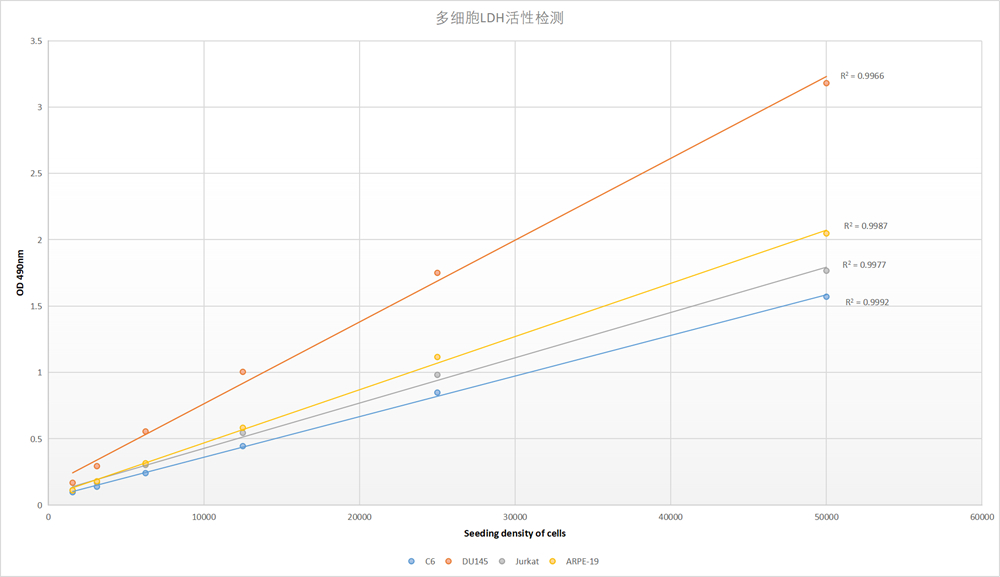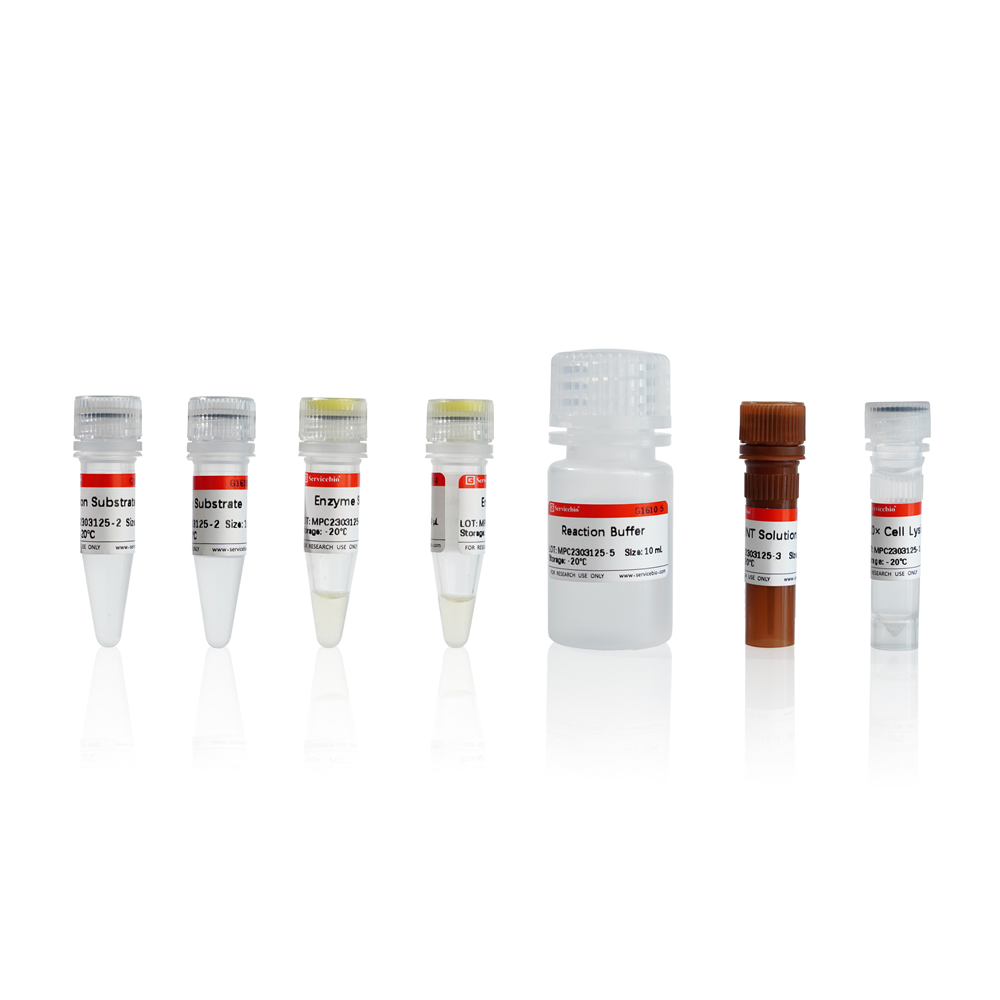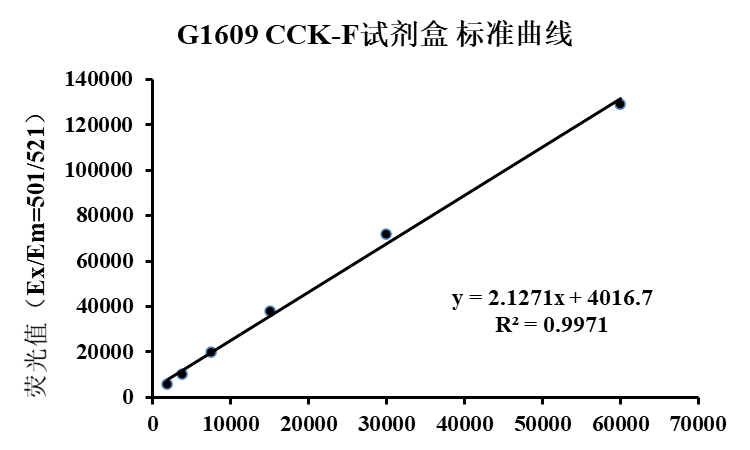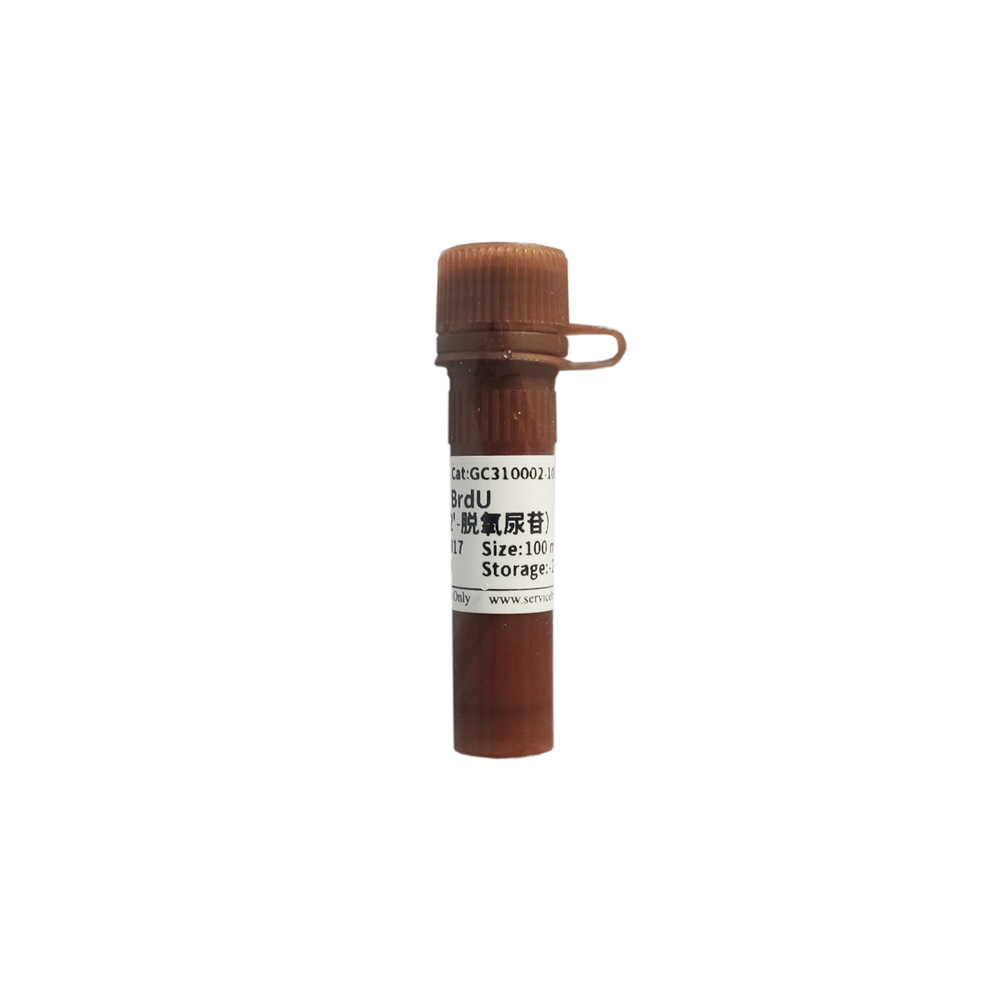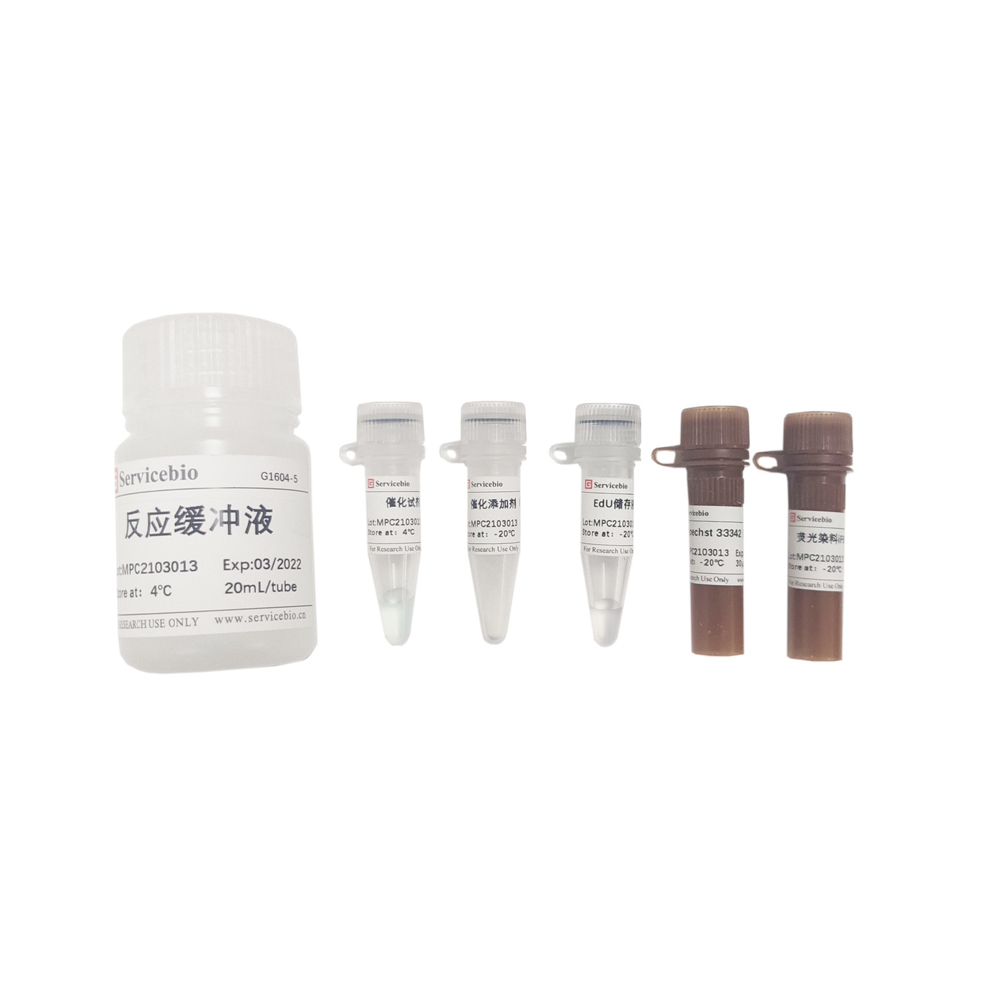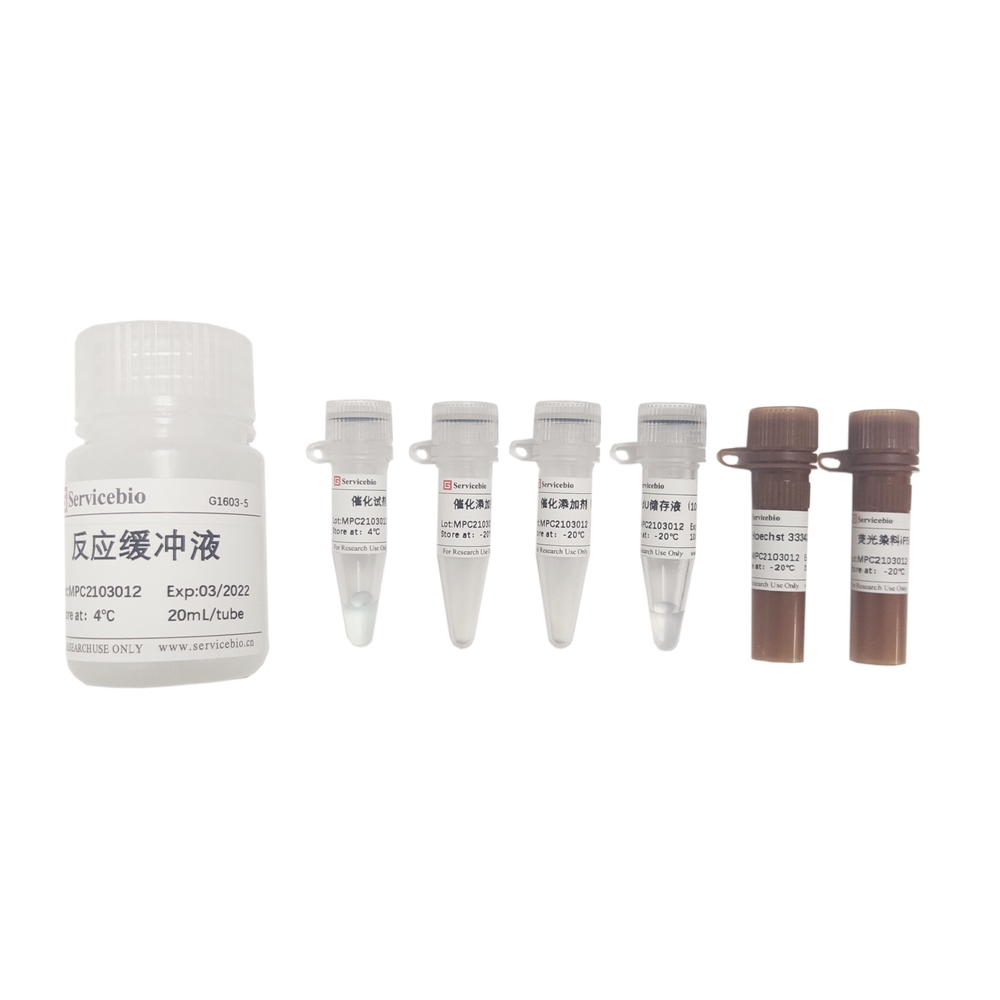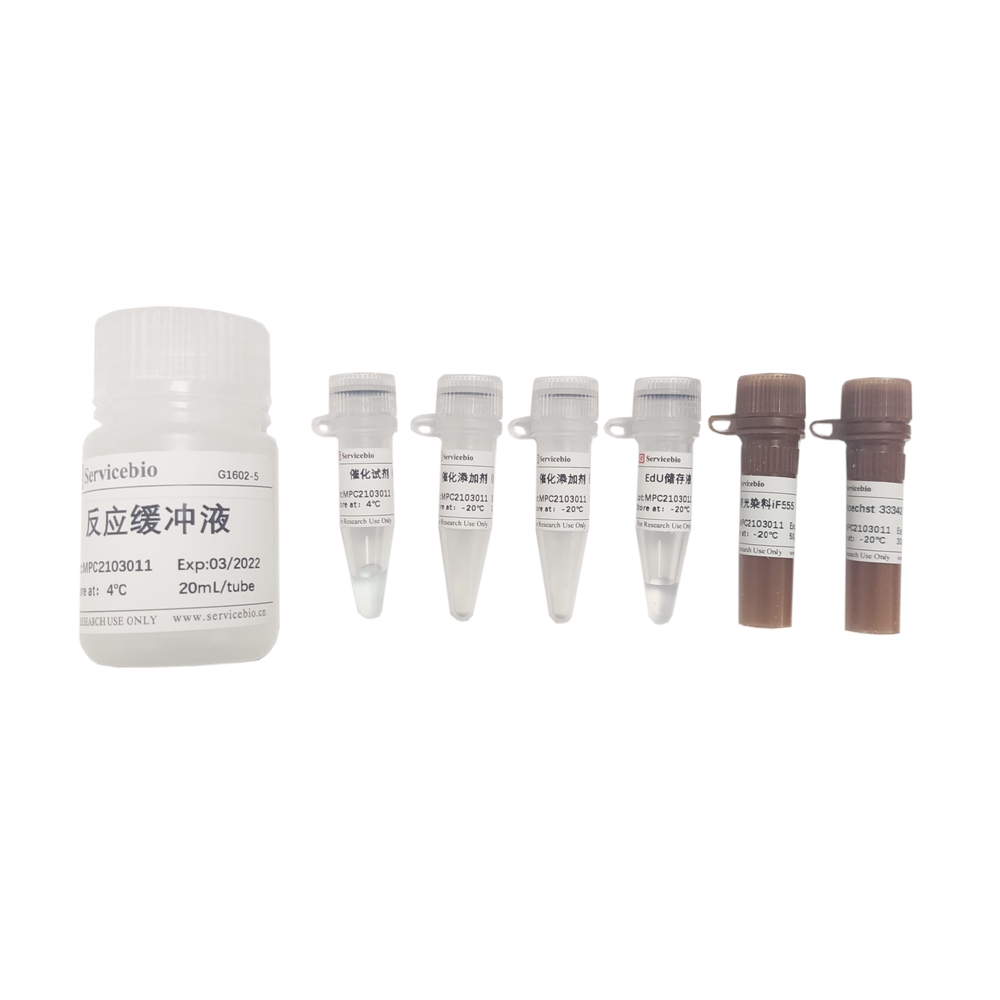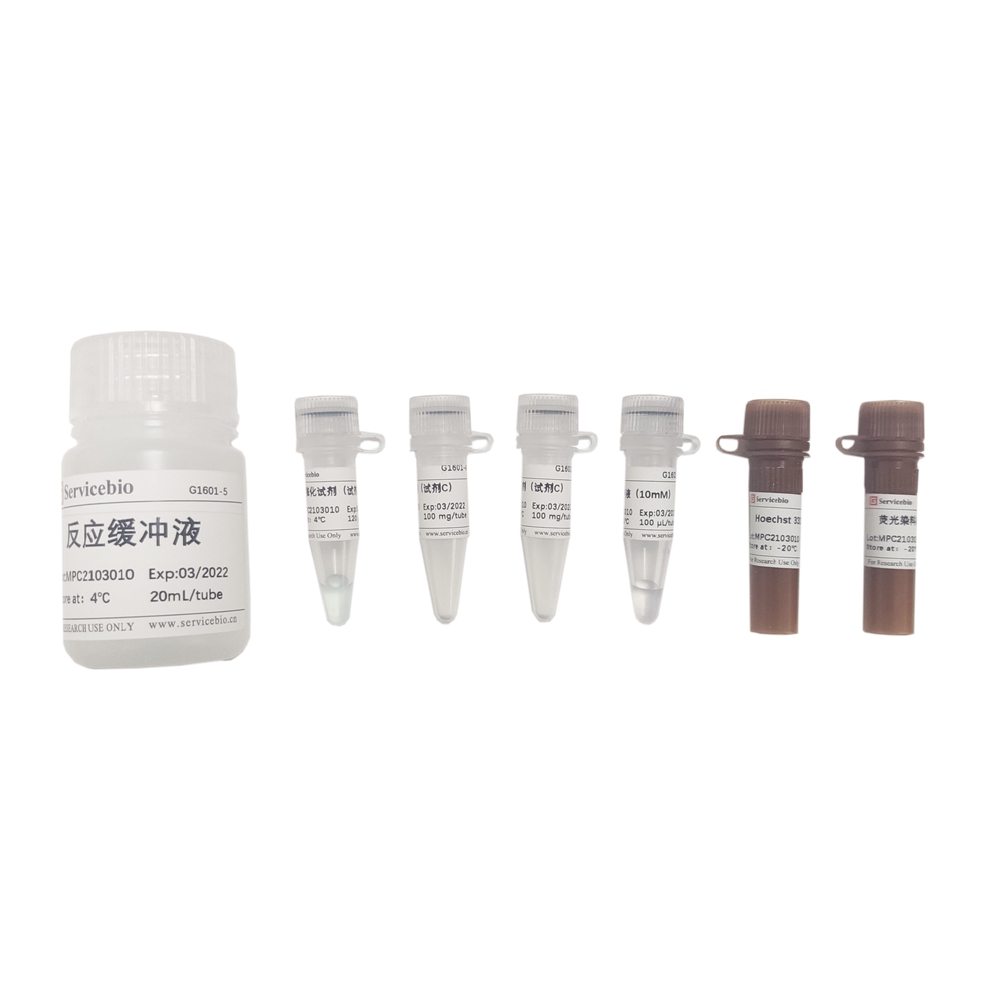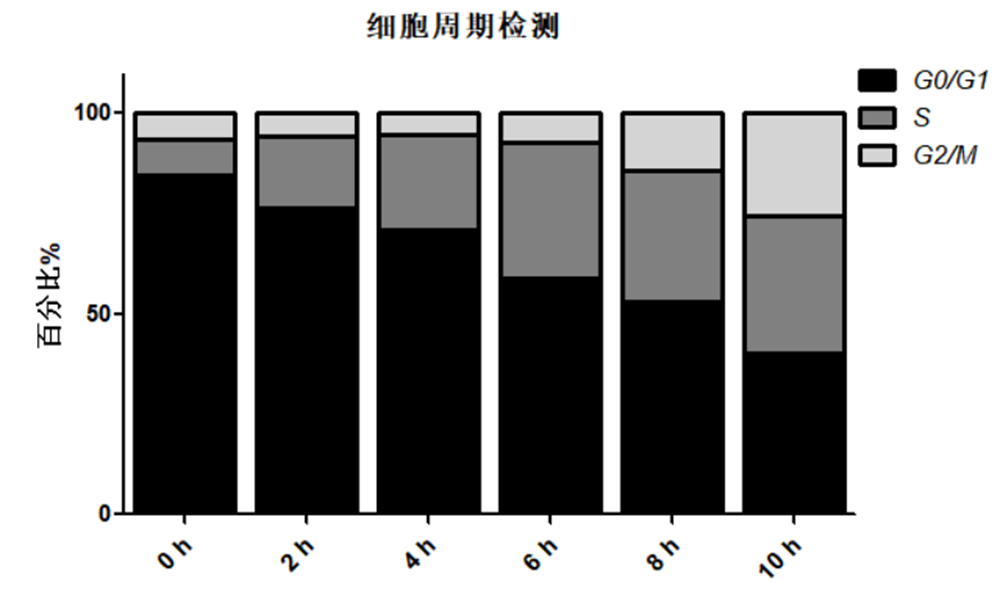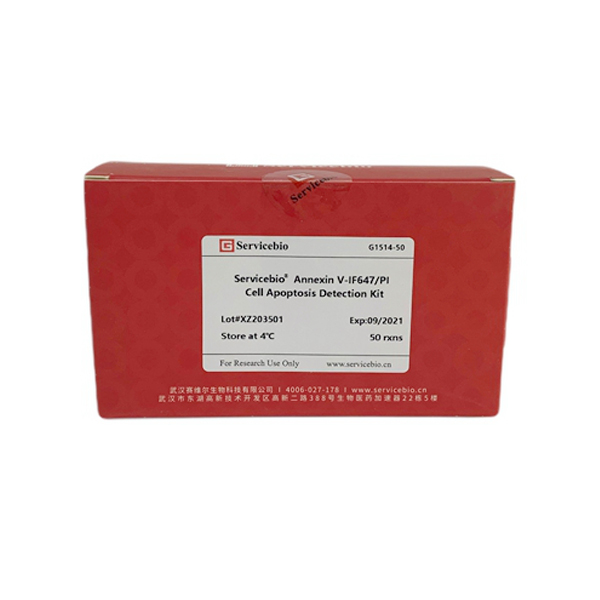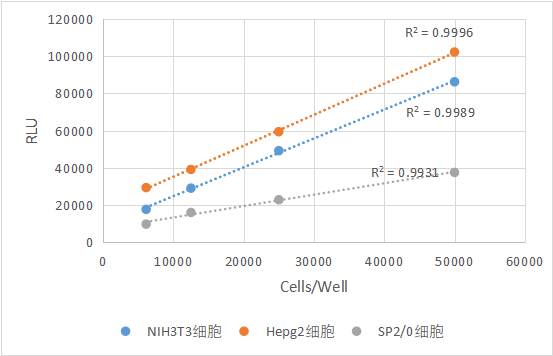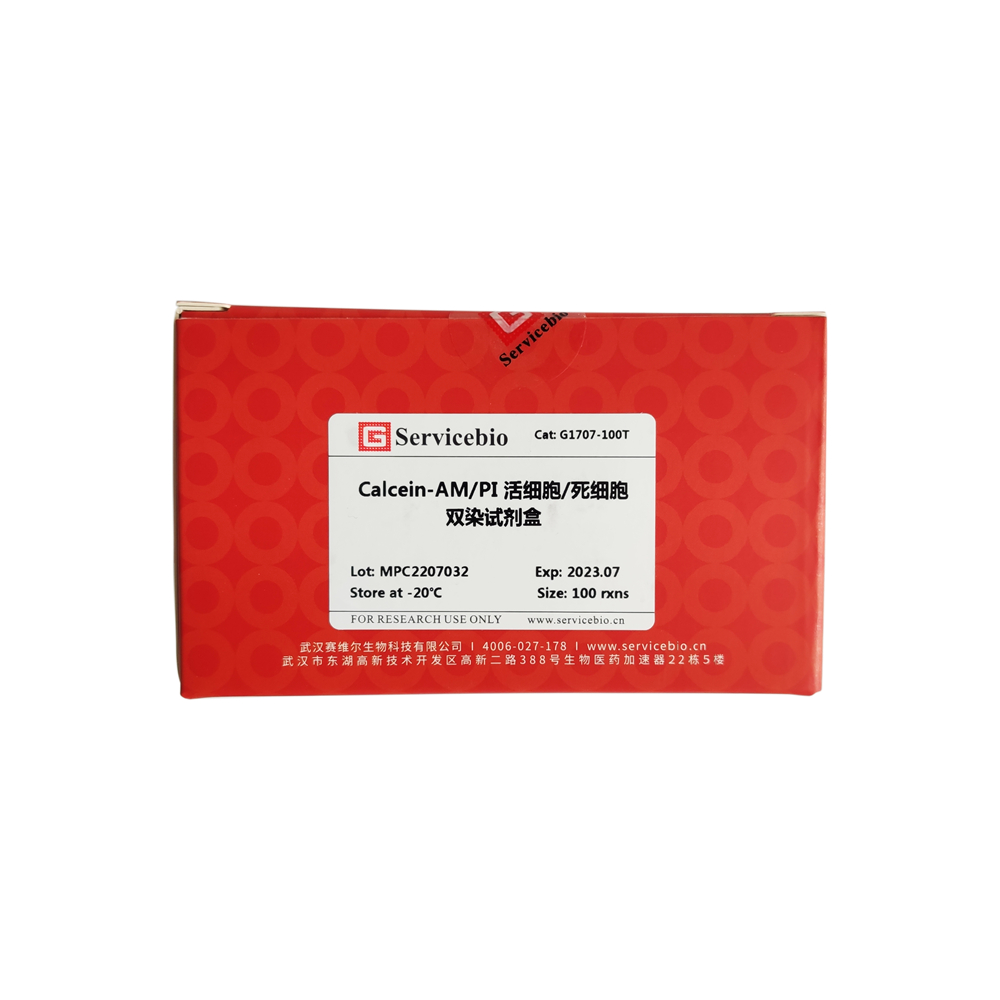Description
Product Information
| Product Name | Cat.No | Spec. |
| LDH Cytotoxicity Assay Kit | G1610-100T | 100T |
Introduction
Lactate dehydrogenase (LDH) is the terminal enzyme of the glycolytic pathway, widely present in animals, plants, and microorganisms, and is involved in catalyzing the reversible reaction between pyruvate and lactate. Usually, LDH is abundant in the cell cytoplasm. In normal cells, due to the barrier protection of the cell membrane, intracellular LDH cannot freely pass through the cell membrane. However, when the cells are damaged or die, the barrier protection of the cell membrane disappears, and the intracellular LDH is released into the culture medium. Cytotoxicity can be quantitatively analyzed by detecting the amount of LDH released into the culture medium by cell membrane rupture.
The main principle of lactate dehydrogenase (LDH) cytotoxicity detection kit is to use LDH to reduce NAD+ to NADH, and further NADH and INT (tetrazolium salt) are catalyzed by Diaphorase (lipoamide dehydrogenase) to generate NAD+ and red Formazan, the amount of formazan produced has a linear positive correlation with the content of LDH, and can produce an absorption peak at 490 nm wavelength, so it can be quantitatively analyzed by instruments. This kit is mainly used for the detection of cytotoxicity with LDH release as an indicator, and it can also be used for the detection of cell proliferation and toxicity based on total cell LDH.
Storage and Handling Conditions
Transport with wet ice; store at -20°C, keep INT solution in the dark, avoid repeated freezing and thawing of enzyme solution; valid for 12 months.
Components
| Component Number | Component | G1610-100T |
| G1610-1 | 10× Cell Lysis Buffer | 1.5 mL |
| G1610-2 | Reaction Substrate | 2 mL |
| G1610-3 | INT Solution | 200 μL |
| G1610-4 | Enzyme Solution | 2×150 μL |
| G1610-5 | Reaction Buffer | 10 mL |
| Instruction Manual | 1 pc | |
Steps
1. Sample Preparation:
1) Preparation of samples for LDH release assay:
a. Cell seeding: cells are seeded in a 96-well cell culture plate at an appropriate density, and multiple groups can be set according to experimental requirements, such as: background blank control wells (only cell culture medium), sample control wells (untreated) cell wells), sample maximum enzyme activity control wells (untreated wells, the total intracellular LDH amount was measured after cell lysis), treated sample wells (experimental group), etc.;
b. Cell treatment: According to the experimental design, remove the original medium, wash it once with PBS buffer (recommended G4202), and replace it with the corresponding drug-containing or drug-free serum-free or low-serum medium according to the group, and incubate for a certain period of time. time;
c. Sample collection: Centrifuge the cell culture plate at 1000 g for 5 min, take 80 μL of culture supernatant, add it to a new 96-well plate, and then measure the sample (sample preparation for the control well with the maximum enzyme activity of the sample, please Refer to the sample preparation steps for total intracellular LDH assay).
2) Sample preparation for total intracellular LDH detection:
a. Cell seeding: cells are seeded in a 96-well cell culture plate at an appropriate density, and multiple groups can be set up according to experimental requirements;
b. Cell treatment: according to the experimental design, use drug-containing or drug-free medium (may contain serum) to incubate cells;
c. Cell lysis: After reaching the predetermined time, remove the original medium, wash it with PBS, add 120 μL of cell lysis working solution (10× cell lysis solution diluted 10 times with PBS), and incubate in the incubator for 30-60 min ;
d. Sample collection: Centrifuge the cell culture plate at 1000 g for 5 min, and add 80 μL of the lysis supernatant to a new 96-well plate, followed by assay.
3) (Optional) LDH standard sample preparation:
For absolute quantification of LDH enzyme activity, please purchase and prepare LDH standards of different concentrations by yourself. , 0 mU/mL. Add 80 μL per well to a 96-well plate gradient.
2. LDH Detection:
1) According to the number of samples to be tested, refer to the table below to prepare an appropriate amount of LDH detection working solution (mainly corresponding to 96-well plate detection, and other specifications of well plates, which can be adjusted as needed);
| 1 Sample | 10 Samples | 20 Samples | 50 Samples | |
| Reaction Substrate | 20 μL | 200 μL | 400 μL | 1 mL |
| INT Solution | 2 μL | 20 μL | 40 μL | 100 μL |
| Enzyme Solution | 3 μL | 30 μL | 60 μL | 150 μL |
| Reaction Buffer | 55 μL | 550 μL | 1.1 mL | 2.75 mL |
| Total Volume | 80 μL | 800 μL | 1.6 mL | 4 mL |
2) Add the LDH detection working solution to the wells of the samples to be tested, 80 μL per well (the volume ratio of the sample to the LDH detection working solution is 1:1), tap and mix well;
3) Put it in a cell incubator, incubate in the dark for 30 minutes, or wrap it with tin foil, and incubate it on a horizontal shaker for 30 minutes at room temperature;
4) Using a microplate reader, measure the absorbance at 490 nm. Dual wavelength measurements can be performed using any wavelength of 600 nm or greater as the reference wavelength.
3. LDH Result Calculation:
1) Routine LDH (release) cytotoxicity assay:
a. Subtract the OD490 of the background blank control wells from the OD490 of the sample control wells, sample maximum enzyme activity control wells, processed sample wells, etc., and use them for subsequent calculations;
b. Calculation of cytotoxicity or death rate (%) = (OD490 of treated sample well – OD490 of sample control well)/(maximum enzyme activity of sample control well OD490 – sample control well OD490) × 100%
2) Relative quantification of LDH enzyme activity (according to the calculation results, it is possible to compare whether there are statistical differences between different sample treatment groups, etc.):
a. Determine the OD490 of a known concentration of LDH standard;
b. LDH activity of the sample to be tested (mU/mL) = (OD490 of sample well – OD490 of background blank control well) / (OD490 of standard product – OD490 of background blank control well) × standard concentration (mU/mL)
3) Absolute quantification of LDH enzymatic activity:
a. Measure the OD490 of a series of LDH gradient standard products, draw a standard curve according to the obtained absorbance value, and calculate the trend formula: Y(OD490)=A×LDH activity unit (mU)+B, the trend can be calculated by software such as Excel the slope and intercept of the line;
b. LDH activity in the detection system (mU) = (sample well OD490-background blank control well OD490-B)/A
Sample LDH activity (mU/mL) = LDH activity in the detection system (mU) / detection volume (mL)
Note
1. During cell detection, the density should not exceed 85%. Factors such as the state and density of cells will have a certain impact on the release of LDH from cells. After the sample is prepared, try to complete the detection on the same day, and do not freeze;
2. Serum contains lactate dehydrogenase, it is recommended to use serum-free or low-serum medium; if 10% serum must be used, a cell-free control group should be set to eliminate background interference;
3. The operation should be as gentle as possible to avoid the generation of air bubbles, so as not to affect the experimental results;
4. For your health and safety, please wear a lab coat and gloves when operating.
For Research Use Only!
|
Cat.No.
|
Product Name
|
Spec.
|
Operation
|
|---|
|
G1601
|
Click-iT EdU-488 Cell Proliferation Detection Kit
|
100 T
|
|
|
G1602
|
Click-iT EdU-555 Cell Proliferation Assay Kit
|
100 T
|
|
|
G1603
|
Click-iT EdU-594 Cell Proliferation Assay Kit
|
100 T
|
|
|
G1604
|
Click-iT EdU-647 Cell Proliferation Assay Kit
|
100 T
|
|
|
G1609-100T
|
Calcein AM Cell Viability Assay Kit
|
100 T
|
|
|
G1609-500T
|
Calcein AM Cell Viability Assay Kit
|
500 T
|
|
|
G1610-100T
|
LDH Cytotoxicity Assay Kit
|
100 T
|
|
|
G1707-100T
|
Servicebio® Calcein-AM/PI Living / Dead cell Double Staining Kit
|
100 T
|
|
|
G4101-1000T
|
MTT Cell Viability Assay Kit
|
1000 T
|
|
|
G4101-200T
|
MTT Cell Viability Assay Kit
|
200 T
|
|
|
G4102-100T
|
Brdu Detection Kit
|
100 μL+30 mL×4
|
|
|
G4102-50T
|
Brdu Detection Kit
|
50 μL+30 mL×4
|
|
|
G4103-1ML
|
Cell Counting Kit-8
|
1 mL (100T)
|
|
|
G4103-5ML
|
Cell Counting Kit-8
|
5 mL (500T)
|
|
|
G4104-100T
|
MTT Cell Proliferation and Cytotoxicity Assay Kit
|
100 T
|
|
|
G4104-500T
|
MTT Cell Proliferation and Cytotoxicity Assay Kit
|
500 T
|
|
|
G5059-100MG
|
EdU (5-Ethyl-2′-deoxyuridine)
|
100 mg
|

